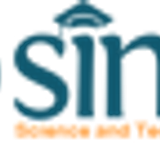DIGITAL GOVERNANCE DALAM KEBIJAKAN PUBLIK DI ERA VUCA: EVALUASI KESIAPAN DAN TANTANGAN DAERAH PEMEKARAN BARU DI INDONESIA
Sari
Teks Lengkap:
PDFReferensi
Alawamleh, M., Al-Twait, L. M., & Al-Saht, G. R. (2020). The effect of remote learning on students’ performance during the COVID-19 pandemic. International Journal of Emerging Technologies in Learning (iJET), 15(21), 114–126. https://doi.org/10.3991/ijet.v15i21.15647
Asatryan, Z., & Peichl, A. (2020). Public sector efficiency: Evidence for the European Union. European Journal of Political Economy, 64, 101–122.
https://doi.org/10.1016/j.ejpoleco.2020.101932
Basyir, M. (2022). Digital governance dan tantangan implementasinya di Indonesia. Jurnal Administrasi Publik Indonesia, 17(2), 145–159.
Cordella, A., & Paletti, A. (2019). Government as a platform, orchestration, and public value creation: The Italian case. Government Information Quarterly, 36(4), 101–113. https://doi.org/10.1016/j.giq.2019.101409
Dwivedi, Y. K., et al. (2021). Public policy and governance in the era of digitalization: Opportunities and challenges. Government Information Quarterly, 38(3), 101–113. https://doi.org/10.1016/j.giq.2021.101590
Goldsmith, S., & Crawford, S. (2014). The responsive city: Engaging communities through data-smart governance. Jossey-Bass.
Huda, N. M., & Fathurrahman, H. (2021). Inovasi digital dalam pelayanan publik di era VUCA. Jurnal Manajemen dan Kebijakan Publik, 12(1), 45–59.
Kristian, I. (2023). Kebijakan Publik Dan Tantangan Implementasi Di Indonesia. Jurnal Dialektika: Jurnal Ilmu Sosial, 21(2), 88-98..
Janssen, M., Charalabidis, Y., & Zuiderwijk, A. (2012). Benefits, adoption barriers and myths of open data and open government. Information Systems Management, 29(4), 258–268. https://doi.org/10.1080/10580530.2012.716740
Junaidi, E. (2022). Penerapan e-government di daerah pemekaran baru. Jurnal Ilmu Administrasi Negara, 19(1), 33–46.
Kettunen, P., & Kallio, J. (2021). Digital transformation in public sector organizations: The role of competencies. Government Information Quarterly, 38(4), 101–117.
Kim, S., Kim, H. J., & Lee, H. (2009). An institutional analysis of an e-government system for anti-corruption: The case of OPEN. Government Information Quarterly, 26(1), 42–50.
Kumar, V., & Wirtz, J. (2022). Digital service transformation in the public sector. Public Management Review, 24(4), 563–586.
Linders, D. (2012). From e-government to we-government: Defining a typology for citizen co-production in the age of social media. Government Information Quarterly, 29(4), 446–454.
Luna-Reyes, L. F., & Gil-Garcia, J. R. (2014). Digital government transformation and internet portals: The co-evolution of technology, organizations, and institutions. Government Information Quarterly, 31(4), 545–555.
Mergel, I., Edelmann, N., & Haug, N. (2019). Defining digital transformation: Results from expert interviews. Government Information Quarterly, 36(4), 101–110.
Prasetyo, Y. T., & Yuliani, E. (2020). Implementasi smart governance di daerah tertinggal. Jurnal Administrasi Publik, 15(2), 55–68.
Scott, M., DeLone, W., & Golden, W. (2016). Measuring eGovernment success: A public value approach. European Journal of Information Systems, 25(3), 187–208.
Setiawan, A. (2021). Kesenjangan digital di Indonesia: Tantangan dan strategi. Jurnal Komunikasi dan Informasi Publik, 8(1), 21–35.
United Nations. (2022). UN E-Government Survey 2022: The Future of Digital Government. New York: United Nations Department of Economic and Social Affairs.
DOI: http://dx.doi.org/10.25157/dak.v12i2.20961
Refbacks
- Saat ini tidak ada refbacks.
##submission.copyrightStatement##
DINAMIKA
Program Studi Administrasi Publik, Fakultas Ilmu Sosial dan Ilmu Politik
email: dinamika@unigal.ac.id
ISSN: 2356-2269
eISSN: 2614-2945
Dinamika : Jurnal Ilmiah Ilmu Administrasi Negara © 2023 by Program Studi Administrasi Publik, FISIP - Universitas Galuh is licensed under CC BY-NC-SA 4.0
Created by Admin






